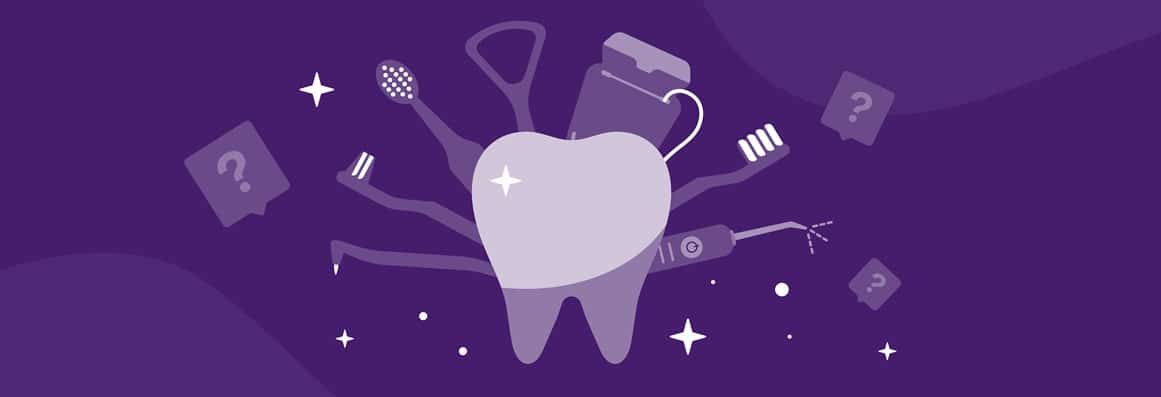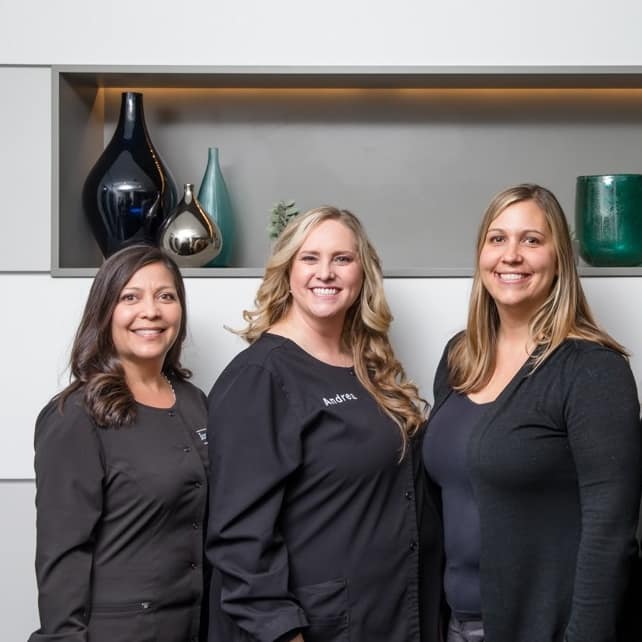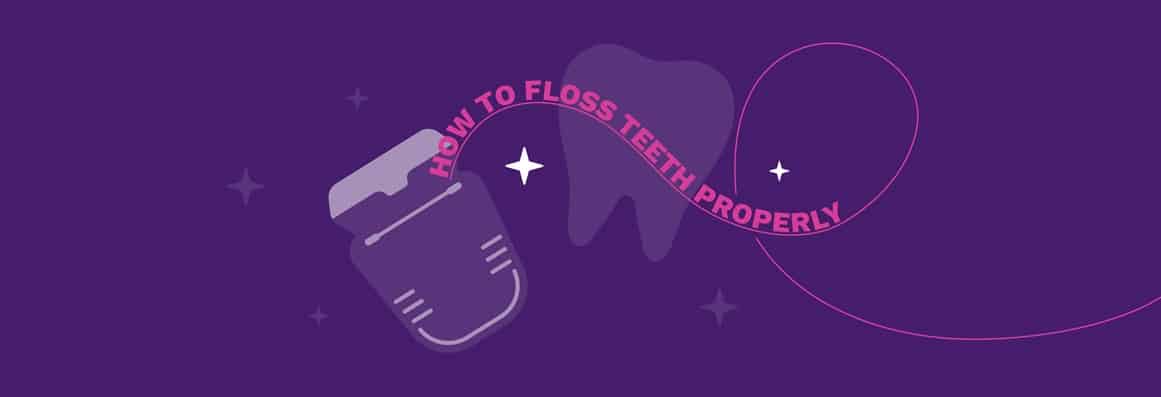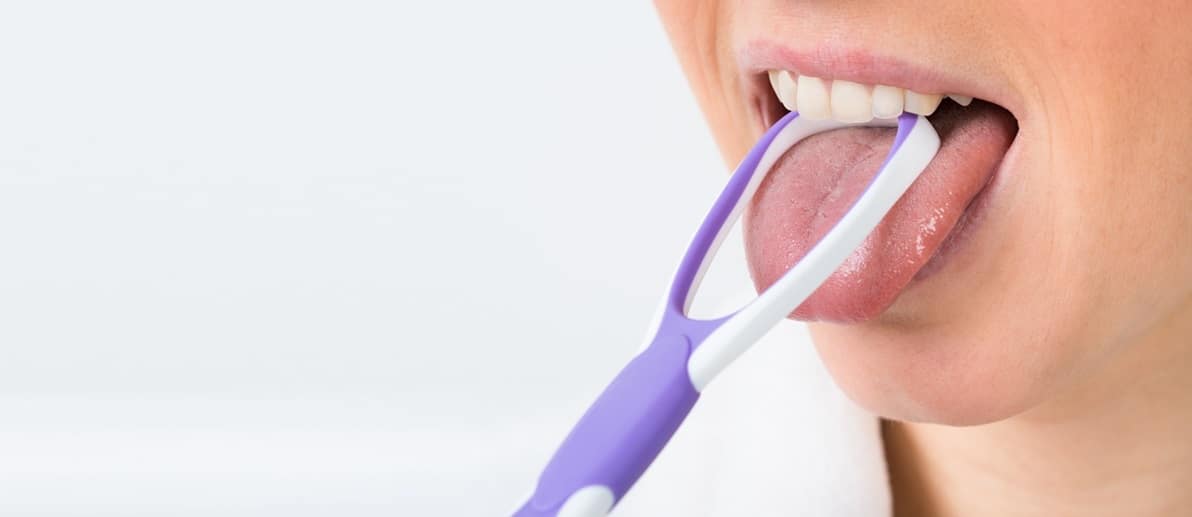Improve Your Oral Hygiene Routine

Do you know the two most important things to do for optimal oral health? If you’re guessing they both have to do with taking proper care of your teeth, you guessed right!
First, visit your dentist regularly for professional teeth cleanings. Only dental hygienists can remove tartar — hardened plaque — effectively. Your dentist also has other equipment like scalers and lasers and the expertise to clean your teeth better than you can at home.
However, taking care of your teeth at home is just as important. The goal with home oral care is to remove as many food particles and as much bacteria and plaque as possible. Plaque can turn into tartar, increasing bacteria in your mouth and causing many problems, not just orally but throughout the rest of your body.
This article covers the best steps in taking care of your oral health at home — and in between dental visits — including how often to perform certain tasks and the order in which to do them.
Items to Include in Your Home Oral Care Routine
Recommended
- Brush your teeth
- Floss with string floss/dental tape
- Floss with a water flosser
Optional
- Tongue scraping
- Other floss-type methods
- Rinsing with mouthwash
Not Recommended
- Scaling
Brushing
How Often Should I Brush?
Like the ADA suggests, we recommend brushing your teeth twice daily for two minutes each time.¹
When Should I Brush?
It’s best to brush your teeth in the morning and before bedtime, and that’s what most of our patients do. Although that’s best, there are also times when you shouldn’t brush your teeth because you may damage them. To learn more, read our article about when not to brush your teeth .
What Type of Toothbrush Should I Use?
There are many types of toothbrushes on the market, but we believe everyone should use an electric one because we think they clean the most thoroughly, and you can better control the amount of pressure you use. Read our article that delves into the types of toothbrushes available to see which one may be best for you and determine if you should use another kind of brush in addition to an electric one. Depending on your health history, you may also need a specialty brush.
What Type of Brushing Technique Should I Use?
Up and down? Side to side? Circular? You’ve probably heard them all by now, so read our article on how to brush your teeth to find out the best process to use.
What Type of Toothpaste Is Best for Me?
Shopping for toothpaste can be overwhelming with all the different varieties, and there’s a chance you may not be using the right toothpaste for your needs. Check out our article that describes all the types of toothpaste available and our recommendations to help you select the best one.
Flossing
Should I Floss with String or Specialty Floss?
Everyone, except for people with complete dentures or All-on-4s, should use string floss in their dental routine. The type you use may depend on any past dental work and your dental history. For example, you should use other types of floss along with string floss if you have dental bridges or gaps between your teeth. See our article on types of dental floss to see which ones you should use.
How Often Should I Floss?
As the ADA states, you should floss once daily,² but twice daily is fine, too.
How to Floss Properly
Technique is essential to flossing properly. Check out our article on how to floss to make sure you’re doing it correctly.
Water Flossing
What Is a Water Flosser?
Water flossing is a method of flossing with a stream of water, which can reach places string floss can’t. There are many types available, each with its pros and cons. Read our comprehensive guide on water flossers to help you decide which one to get.
Who Should Use a Water Flosser?
We suggest everyone use a water flosser in their oral hygiene routine. Not only are they effective at removing debris that string floss can’t, but they also come with various water flosser tips depending on your individual needs. For example, there’s a special tip you could use if you wear braces. The WaterPik brand has seven different tip options alone!
How Often Should I Use a Water Flosser?
We recommend using a water flosser daily. You could use it in the morning or evening, but we recommend it in the evening before bed.
Tongue Scraping
What Is Tongue Scraping?
Tongue scraping is the process of running a scraper across your tongue to remove bacteria, dead cells, and debris. It has many benefits, including reducing bad breath, and you can find out more about it in our article on tongue scraping .
Who Should Use a Tongue Scraper?
Everyone should clean their tongue, but it’s up to you whether you want to do it with a brush or tongue scraper.
How Often Should I Use One?
Whether you use a brush or tongue scraper to clean your tongue, you should use it every time you brush your teeth, so twice daily.
Mouthwash
What Does Mouthwash Do?
Depending on the type you use, mouthwash can help remove food particles, kill bacteria, freshen your breath, and help combat dry mouth. Please read our guide on mouthwash to find out the different types and which ones may be best for you based on your needs.
Should I Use Mouthwash?
We don’t suggest mouthwash for most people. However, it may benefit you depending on your dental condition. Our mouthwash article covers this in detail.
Scaling
Should I Deep Clean My Teeth at Home?
No, we don’t recommend you scale your teeth at home because it won’t be effective enough, and you could damage them. Even our hygienists, who are experts at cleaning teeth, never scale their own because it’s difficult to do and they could cause damage. However, you can still become a pro at cleaning your teeth and enjoy good dental health just by following this guide.
In Which Order Should I Perform My Dental Routine?
The process relies on whether you use a prescription mouthwash or an over-the-counter mouthwash with fluoride. If you use either one, rinse with mouthwash after brushing so the fluoride lingers on your teeth.
If you use an over-the-counter mouthwash without fluoride, use the mouthwash before brushing with fluoride toothpaste, then spit it out and don’t rinse so the fluoride from the toothpaste remains on your teeth for as long as possible.
If Using a Prescription Mouthwash or Over-the-Counter One with Fluoride
- Floss using string and/or specialty floss
- Use a water flosser
- Clean your tongue with a toothbrush or tongue scraper
- Brush your teeth (You can rinse afterward.)
- Rinse with a prescription mouthwash or any mouthwash with fluoride
If Using an Over-the-Counter Mouthwash without Fluoride
- Floss using string and/or specialty floss
- Use a water flosser
- Clean your tongue with a toothbrush or tongue scraper
- Use an over-the-counter mouthwash (if desired)
- Brush your teeth (Spit out the toothpaste and don’t rinse after brushing.)
Summary
Good dental hygiene is so important, and it’s up to you to ensure you’re doing everything you can to enjoy optimal oral health for a lifetime. And as crucial as it is to take care of your teeth at home, don’t forget to visit your dentist for regular checkups and cleanings. Your dentist can spot things you may not be aware of, and a professional cleaning is something you can’t replicate at home.
References
-
-
-
- Department of Scientific Information, Evidence Synthesis & Translation Research, ADA Science & Research Institute, LLC. (2022, October 7). Toothbrushes. ADA.org. Retrieved November 6, 2023, from https://www.ada.org/en/resources/research/science-and-research-institute/oral-health-topics/toothbrushes#:~:text=The%20American%20Dental%20Association%20recommends,minutes%20using%20a%20fluoride%20toothpaste.
- Department of Scientific Information, Evidence Synthesis & Translation Research, ADA Science & Research Institute, LLC. (2021, September 21). Floss/Interdental Cleaners. ADA.org. Retrieved November 6, 2023, from https://www.ada.org/en/resources/research/science-and-research-institute/oral-health-topics/floss#:~:text=The%20ADA%20recommends%20brushing%20twice,floss%20after%20their%20midday%20meal.
-
-




